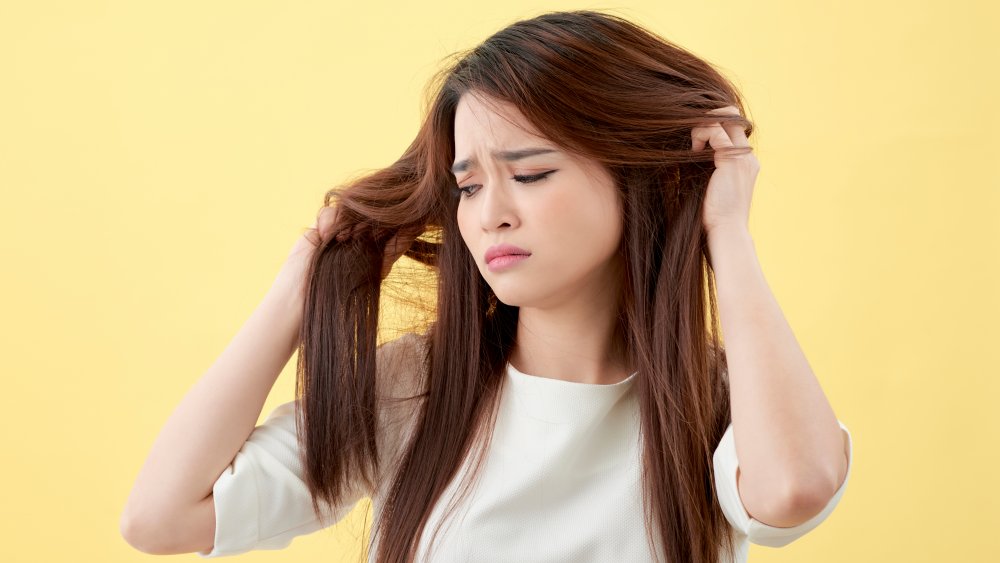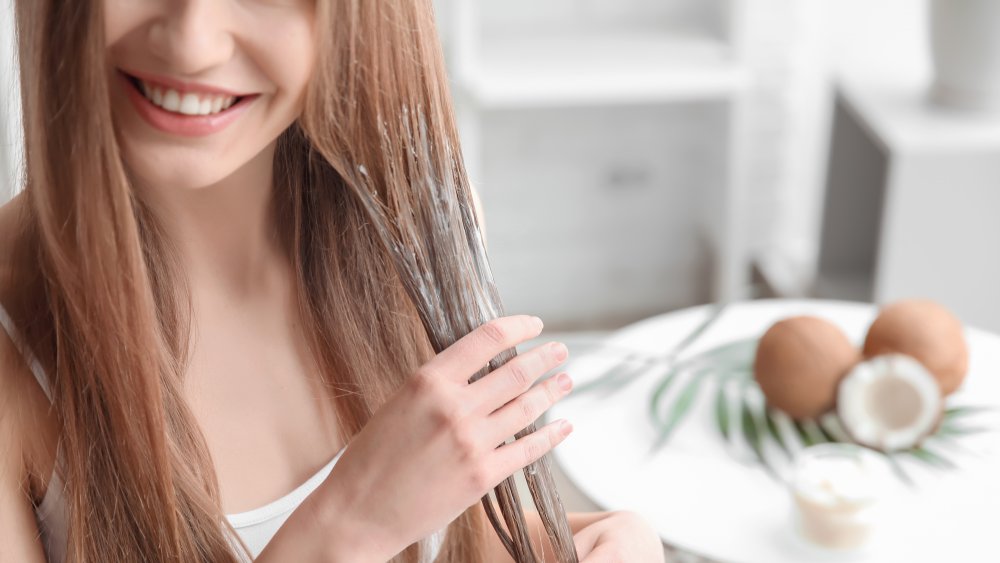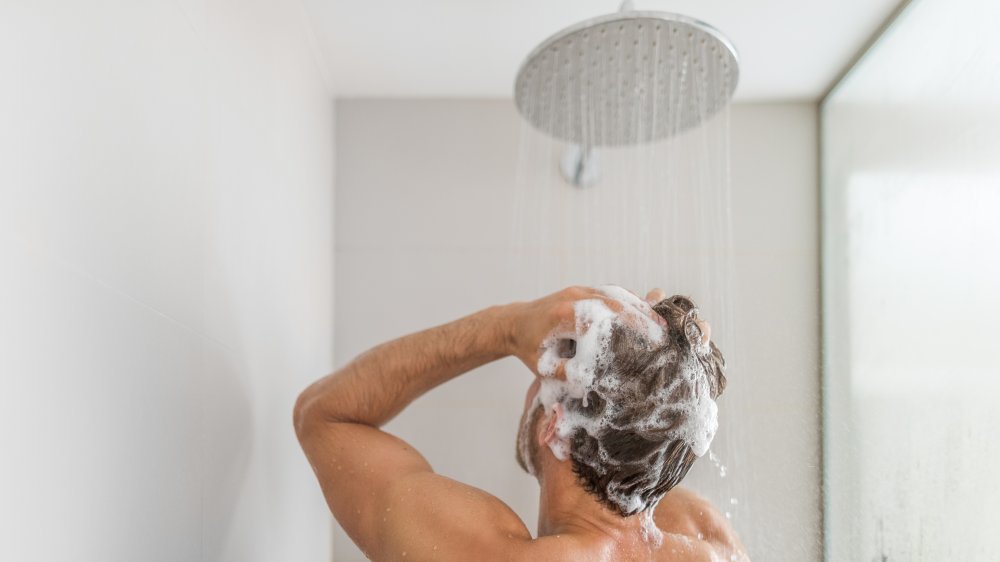The Important Difference Between Dandruff And Dry Scalp
Itchy scalp? You're certainly not the only one. And with colder weather upon us, it's likely that your itchy scalp might start to get even itchier. But before you reach for that dandruff shampoo, it's important to first analyze what your symptoms are before self-diagnosing. Indeed, the two most common ailments that could be leading to your itchy head are dandruff and dry scalp. While the two have similar symptoms and side effects, they're actually different enough to require very different treatments.
Of the two, dandruff is what you might be more familiar with, as it tends to be more common (via Healthline). According to Medical News Today, dandruff causes your scalp to flake, and can sometimes be caused by a fungal or scalp infection. Dry skin, on the other hand, happens when your scalp doesn't produce enough moisture. Keep reading to learn more about the differences between the two, and next steps to take once you've accurately self-diagnosed.
Treat your dry scalp with extra moisture — and mashed bananas
Since dry scalp is the result of your scalp receiving not enough moisture, the skin on your scalp literally dries up, becomes itchy, and flakes off. This is why you might think the little white specks in your hair and on your shirt are just dandruff; but using a dandruff shampoo won't get to the route of the problem. According to Heathline, if the skin on your scalp is dry to this extent, chances are the skin on other parts of your body — such as your arms and legs- — are dry and itchy, as well. That is an especially useful tip to identifying if you have dry scalp.
In addition to a lack of moisture, your scalp might also be dry because of cold air, excessive hair washing, older age, or contact dermatitis, which is most often caused by a reaction to products you apply to your scalp (via Healthline).
So how do you treat dry scalp? First and foremost, make sure you're using a shampoo that will be gentle on your hair and scalp, and follow up with a very moisturizing conditioner. There are also some at-home remedies that you can try — many of which the Internet swears by — such as coconut oil, tea tree oil, and even mashed bananas (via Medical News Today).
Your dandruff might be caused by a fungus
The main cause of dandruff is from a condition called seborrheic dermatitis, in which the skin turns "oily, red, and scaly" (via Healthline). This condition isn't unique to the scalp, and can actually be found anywhere you have oil glands. Your dandruff might also be a result of not washing your hair enough, Dermatologist Dr. Francesca Fusco told InStyle. "The area where the hair emerges from the scalp can start to feel sore from the buildup of excess dead skin cells, and there's dandruff...By not shampooing, you're making the situation worse," she said.
In terms of treatment, dandruff is relatively simple to deal with. In most cases, it should clear up after using a gentle daily shampoo or at-home remedy (via Mayo Clinic). In more serious cases, and ones that are caused by scalp fungi, look for shampoo with more medicinal ingredients that will specifically target the fungus (via Healthline).
And if you still can't identify which is ailing you? Healthline suggests applying a light moisturizer to your scalp before bed. If the flakes are gone in the morning, dry scalp, and not dandruff, was the culprit.


